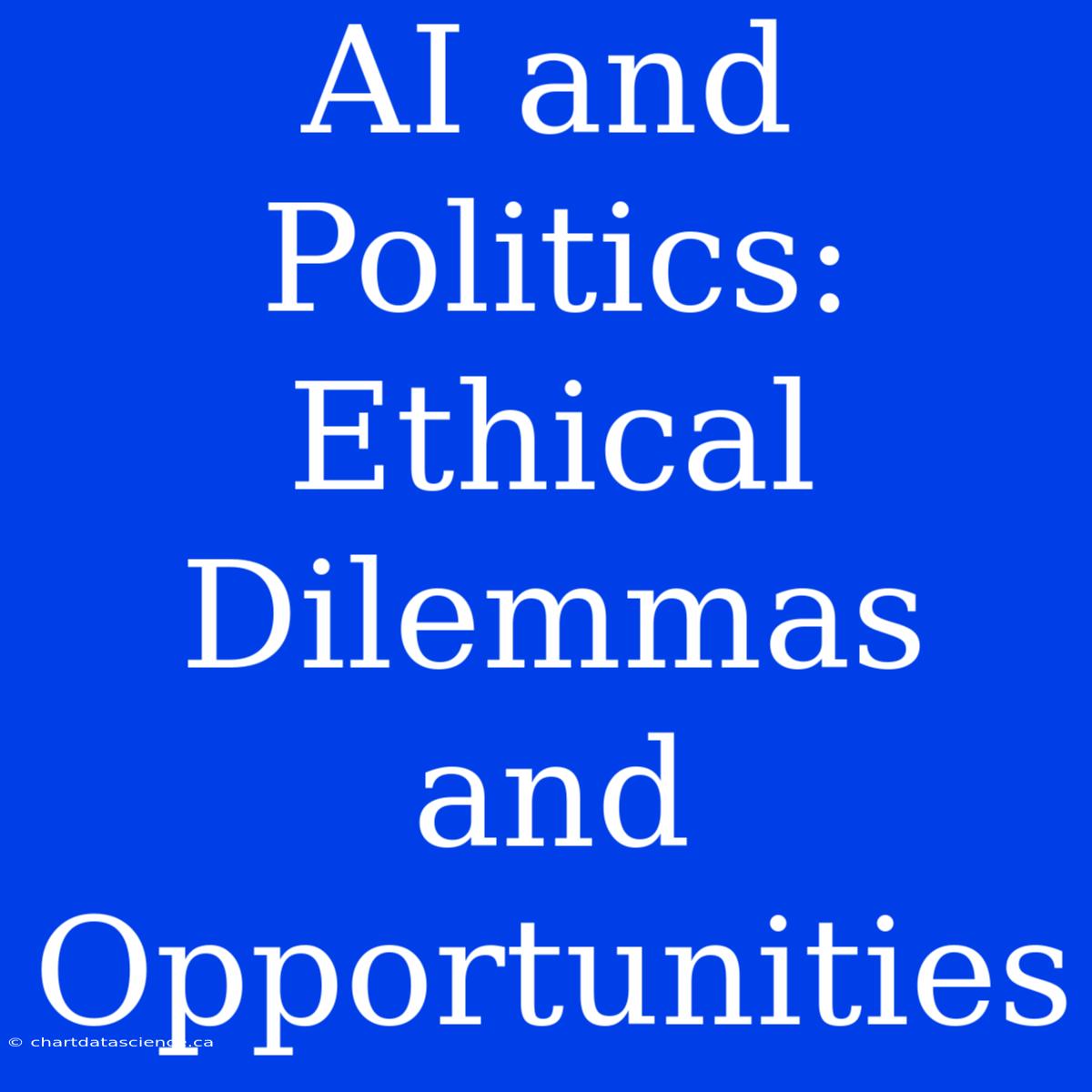AI and Politics: Ethical Dilemmas and Opportunities
The rapid advancement of Artificial Intelligence (AI) has sparked a heated debate about its implications for politics. From automating tasks to influencing public opinion, AI's potential to reshape the political landscape is undeniable. But with this potential comes a host of ethical dilemmas that require careful consideration.
The Double-Edged Sword of AI in Politics
On the one hand, AI can be a powerful tool for improving democratic processes. Imagine AI-powered systems analyzing massive amounts of data to identify voter trends, predict election outcomes, and even personalize campaign messages for greater voter engagement. This could lead to more informed and efficient governance.
On the other hand, the potential for misuse is a major concern. Imagine AI algorithms used to manipulate public opinion, spread misinformation, or even target specific demographics with biased messaging. Such misuse could undermine democratic values and erode trust in institutions.
Ethical Dilemmas at the Forefront
Transparency and Accountability: Who controls the algorithms? How can we ensure that AI systems are fair, unbiased, and transparent in their decision-making? Lack of transparency can lead to opaque processes and potential manipulation.
Privacy and Data Security: AI relies heavily on data, raising concerns about individual privacy. How do we balance the need for data with the protection of personal information? This is particularly relevant in the context of political campaigns and voter profiling.
Bias and Discrimination: AI systems are trained on data, and if that data reflects societal biases, the resulting systems can perpetuate those biases. This could lead to unfair and discriminatory outcomes, impacting underrepresented groups.
Job Displacement: Automation is a key component of AI, raising concerns about job displacement in the political sphere. How can we ensure that AI development and deployment are done in a way that benefits all stakeholders, including workers?
Opportunities for a More Inclusive Future
Enhanced Citizen Engagement: AI can empower citizens by providing them with access to information, facilitating communication with their representatives, and enabling them to participate in decision-making processes more effectively.
Improved Efficiency and Effectiveness: AI can help streamline government operations, automate tasks, and improve the efficiency of public services, freeing up resources for more strategic initiatives.
Data-Driven Policymaking: AI can analyze vast amounts of data to identify trends and patterns, informing policy decisions and leading to better outcomes for society.
Navigating the Future of AI in Politics
The ethical dilemmas surrounding AI in politics are complex and require careful consideration. Open dialogue, collaboration, and responsible development are crucial for harnessing AI's potential while mitigating its risks. By addressing these issues proactively, we can ensure that AI is used to strengthen democracy, promote inclusivity, and create a more just and equitable future for all.

